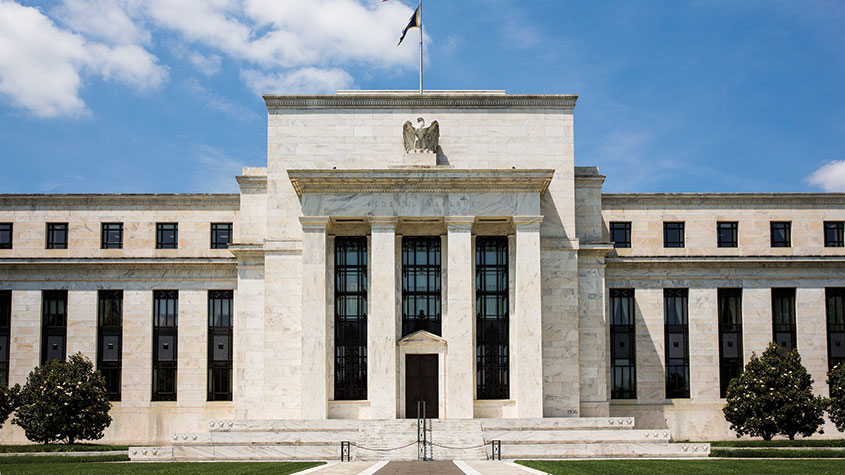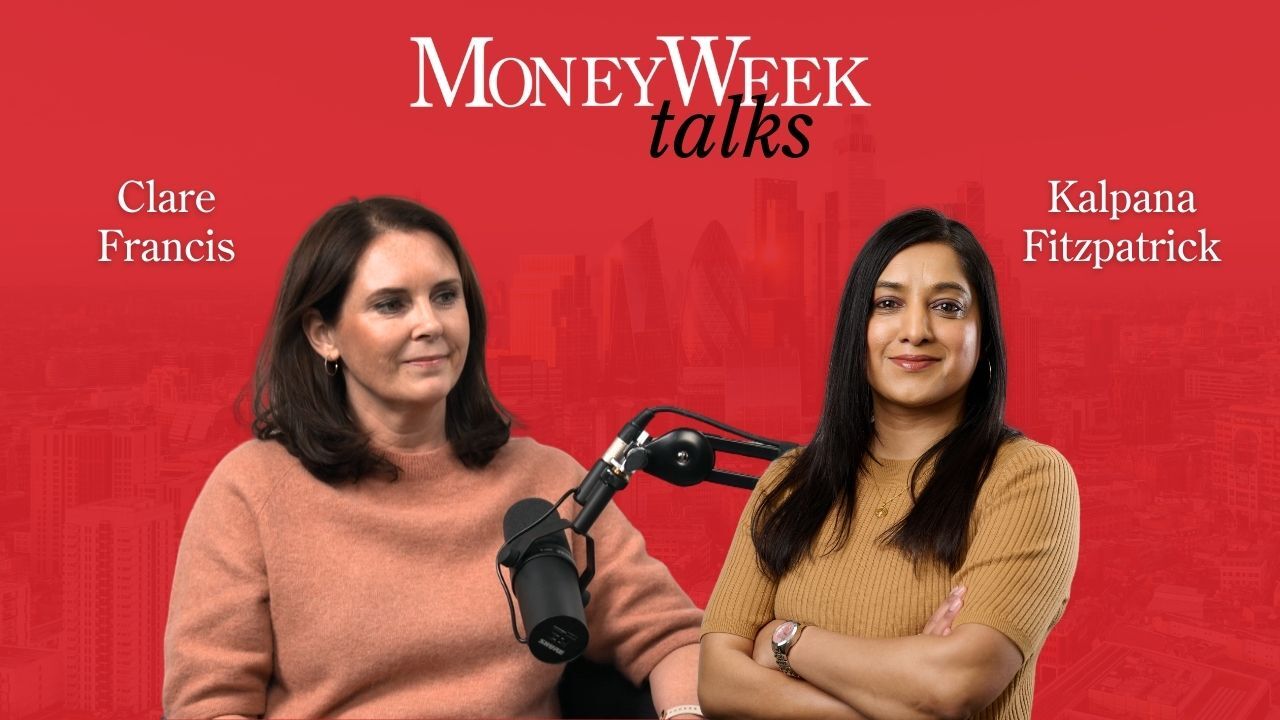The junk-bond bubble bursts
Yields in the US high-yield bond market (AKA junk bonds) have soared to more than 8% since the start of the year as prices collapse.

Get the latest financial news, insights and expert analysis from our award-winning MoneyWeek team, to help you understand what really matters when it comes to your finances.
You are now subscribed
Your newsletter sign-up was successful
Want to add more newsletters?
High-yield bonds are finally living “up to their name”, says Randall Forsyth in Barron’s: yields on debt issued by companies with lower credit ratings plunged during the pandemic, as prices rose owing to ultra-low interest rates (yields move inversely to prices).
But now yields in the US high-yield market have soared by 4.2% since the start of the year to more than 8%, says Rachna Ramachandran of GMO. “There have been only two other instances in which yields have doubled so quickly” in the past 30 years: the 2008 financial crisis and the start of the pandemic in 2020.
The yield spike has brought painful losses for existing bondholders. The iShares iBoxx ETF, which tracks US investment grade debt, is down 15% this year, with a Bloomberg index of high-yield, or “junk” debt also falling 14%. Euro-denominated corporate debt is being similarly hard hit, says Sophie Rolland in Les Échos. Down 13% in the year to 20 June, the market slump far exceeds the 4% it lost in 2008, until now the worst year on record.
Try 6 free issues of MoneyWeek today
Get unparalleled financial insight, analysis and expert opinion you can profit from.

Sign up to Money Morning
Don't miss the latest investment and personal finances news, market analysis, plus money-saving tips with our free twice-daily newsletter
Don't miss the latest investment and personal finances news, market analysis, plus money-saving tips with our free twice-daily newsletter
As well as feeling the effect of higher interest rate expectations, European debt is being hit by the European Central Bank’s (ECB) move to stop purchasing fresh debt with printed money this month. The ECB holds nearly 15% of all investment-grade euro corporate debt following previous rounds of asset purchases. Tightening credit conditions have seen “dozens of corporate bond deals” pulled from the European market, says Ian Johnston in the Financial Times. New corporate debt issuance fell 17% in the first half compared with a year before, with European high-yield debt issuance plunging 78%.
“Bond markets have had a rough year,” says Matt Grossman in The Wall Street Journal. “Red-hot inflation makes the fixed payments offered by most debt investments less appealing.” Yet as the yields offered by corporate debt rise, investors are “giving bonds another look”. Debt issued by blue-chip firms with reliable balance sheets is appealing: “it offers higher returns than government bonds but with relatively little additional risk”.
Will defaults spread?
The key uncertainty is to what extent defaults will rise. In past downturns investors could count on central banks stepping in to ease lending conditions, says Joe Rennison in the Financial Times. Yet now, with inflation soaring, they can’t.
Credit rating agency S&P Global Ratings thinks US corporate defaults will “rise to 3% by next March, up from 1.4% the previous year”, says Julia Horowitz for CNN Business. Still, most corporate balance sheets are reasonably solid after firms “took advantage of rock-bottom borrowing costs over the past two years to stash cash and… refinance their debt”. For now, “those who trade corporate bonds aren’t overly anxious”.
Get the latest financial news, insights and expert analysis from our award-winning MoneyWeek team, to help you understand what really matters when it comes to your finances.
Alex is an investment writer who has been contributing to MoneyWeek since 2015. He has been the magazine’s markets editor since 2019.
Alex has a passion for demystifying the often arcane world of finance for a general readership. While financial media tends to focus compulsively on the latest trend, the best opportunities can lie forgotten elsewhere.
He is especially interested in European equities – where his fluent French helps him to cover the continent’s largest bourse – and emerging markets, where his experience living in Beijing, and conversational Chinese, prove useful.
Hailing from Leeds, he studied Philosophy, Politics and Economics at the University of Oxford. He also holds a Master of Public Health from the University of Manchester.
-
 The UK regions with the highest proportion of homes above the inheritance tax threshold
The UK regions with the highest proportion of homes above the inheritance tax thresholdHigh house prices are pushing more families into the inheritance tax trap across the country
-
 Are money problems driving the mental health crisis? MoneyWeek Talks
Are money problems driving the mental health crisis? MoneyWeek TalksPodcast Clare Francis, savings and investments director at Barclays, speaks about money and mental health, why you should start investing, and how to build long-term financial resilience.
-
 How have central banks evolved in the last century – and are they still fit for purpose?
How have central banks evolved in the last century – and are they still fit for purpose?The rise to power and dominance of the central banks has been a key theme in MoneyWeek in its 25 years. Has their rule been benign?
-
 Halifax: House price slump continues as prices slide for the sixth consecutive month
Halifax: House price slump continues as prices slide for the sixth consecutive monthUK house prices fell again in September as buyers returned, but the slowdown was not as fast as anticipated, latest Halifax data shows. Where are house prices falling the most?
-
 Rents hit a record high - but is the opportunity for buy-to-let investors still strong?
Rents hit a record high - but is the opportunity for buy-to-let investors still strong?UK rent prices have hit a record high with the average hitting over £1,200 a month says Rightmove. Are there still opportunities in buy-to-let?
-
 Pension savers turn to gold investments
Pension savers turn to gold investmentsInvestors are racing to buy gold to protect their pensions from a stock market correction and high inflation, experts say
-
 Where to find the best returns from student accommodation
Where to find the best returns from student accommodationStudent accommodation can be a lucrative investment if you know where to look.
-
 The world’s best bargain stocks
The world’s best bargain stocksSearching for bargain stocks with Alec Cutler of the Orbis Global Balanced Fund, who tells Andrew Van Sickle which sectors are being overlooked.
-
 Revealed: the cheapest cities to own a home in Britain
Revealed: the cheapest cities to own a home in BritainNew research reveals the cheapest cities to own a home, taking account of mortgage payments, utility bills and council tax
-
 UK recession: How to protect your portfolio
UK recession: How to protect your portfolioAs the UK recession is confirmed, we look at ways to protect your wealth.